
Results from the phase 2b study in 8 patients with predictable seizure patterns demonstrated good feasibility, tolerability, and efficacy, with a 62.5% responder rate.

Results from the phase 2b study in 8 patients with predictable seizure patterns demonstrated good feasibility, tolerability, and efficacy, with a 62.5% responder rate.

The post hoc analysis pooled data from 3 trials to evaluate the benefits of adding memantine to treatment with cholinesterase inhibitors for patients with moderate to severe Alzheimer disease.

Although animal models and early phase studies suggested some potential for the hypertension medication to slow disability progression in Parkinson disease, a phase 3 assessment showed a lack of treatment effect.

Interim results of the phase 1/2 study show statistically significant reductions in SOD1 protein levels in cerebrospinal fluid, suggesting lower concentrations in the brain and spinal cord, as well.

In patients with Dravet syndrome who had discontinued an average of 4 antiepileptics drugs, while taking a mean of 3, cannabidiol reduced the incidence of seizures almost in half in doses of both 10 mg/kg and 20 mg/kg per day.

Changes in MS diagnostic criteria and the availability of highly effective DMTs has deemed the risk for postpartum relapse nearly irrelevant for the majority of patients with MS.

Researchers found that cognitively unimpaired patients with apneas had an average of 4.5% higher levels of tau in the entorhinal cortex than those who did not have apneas, after controlling for several other factors.

Our Editor in Chief, Heidi Moawad, MD, will be at the Neurology Times booth (No. 2151) on Monday, May 6, from noon to 1:00 PM.

While the overall link is only suggestive, new findings from a preliminary study have implied that there may be a link between sugar-sweetened beverage consumption and a higher disability status in MS.

Chronic pain, sleep disorders, neuropathy, and anxiety were the most common conditions that showed improvement in the study.

Obstructive sleep apnea may affect the accumulation of tau in the brain.
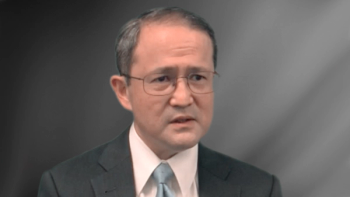
The group medical director of neuroscience at Genentech discussed the history of a well-known therapy for multiple sclerosis: ocrelizumab (Ocrevus).

The importance of effective communication and cultural awareness in patient care and outcomes cannot be overstated.

Dr. Abhinav Raina presents his research on the effect of subthalamic nucleus deep brain stimulation on impulsivity in Parkinson disease patients.

An expert presents the results of a phase 2 study on the impact of rituximab on myasthenia gravis.

Glioblastoma multiforme is the most common and most malignant of all brain tumors. Are things getter better?
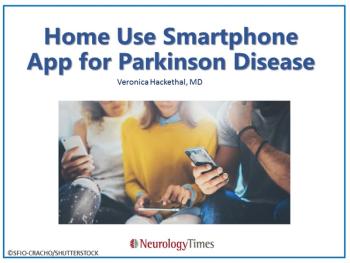
New technology may help patients and providers assess changes in severity of Parkinson disease symptoms more objectively.

A non-invasive vagus nerve stimulation therapy significantly improved pain-free rates compared with a sham device for patients with episodic cluster headache and migraines.

The disease-modifying therapy showed significant improvements in 4 TSQM measures for patients with relapsing multiple sclerosis.
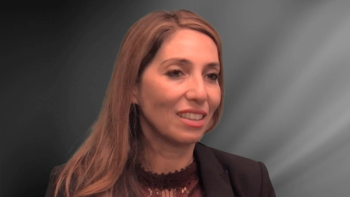
The associate professor of clinical neurology spoke about the need to understand modifiable social and cultural factors that could impact disease severity and progression.

An expert describes the efficacy of fenfluramine in decreasing seizure frequency associated with this rare syndrome.

A unique case of chronic, low level carbon monoxide poisoning in a car mechanic that resulted in Parkinsonian symptoms.

The clinical director of the Anti-NMDA Receptor Encephalitis Foundation spoke about the insidiousness of AD and the need for diagnosis earlier in disease progression.

The announcement was discouraging to many, as only 2 agents for ALS have been granted FDA approval in as many decades.
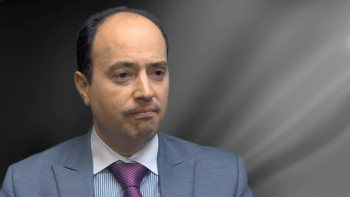
The UC Health professor of neurology argued that with the current view on Parkinson disease, the field is missing the mark for disease-modifying interventions.

The chief medical officer and chief operating officer of Brainstorm Cell Therapeutics spoke about a host of topics related to the treatment of amyotrophic lateral sclerosis.

More than two-thirds of patients treated with intravenous infusions of the CGRP inhibitor eptinezumab had an average 50% reduction in migraines.

Study findings revealed statistically significant results at week 4 for the 100-U dose compared to placebo. The 75-U dose, while effective, did not achieve statistical significance.
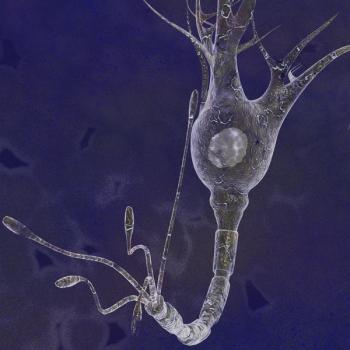
The presence of REM Behavior Disorder predicted an increased risk of Parkinson disease, Lewy Body dementia, or multisystem atrophy in the largest study ever performed in people with the strange disorder. Details here.

The finger displacement sign is a simple bedside test that can help distinguish Parkinson dementia from Alzheimer dementia.